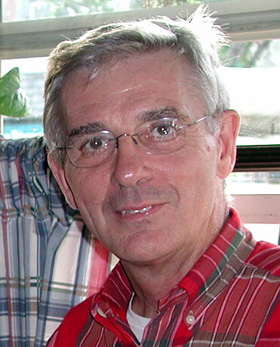
Professors from colleges across the country will descend on BMCC on the morning of Friday, March 28th, to discuss strategies for implementing a Mathematics-Across-the-Curriculum (MAC) initiative, as well as how to best develop courses in Quantitative Reasoning (QR).
Speakers will include: Dr. Bernie Madison, professor at the University of Arkansas and author; Dr. Maura Mast, professor and coordinator of the quantitative reasoning program at the University of Massachusetts; Dr. Bill Briggs, professor at the University of Colorado and author; and Rebecca Hartzler, Dean for Mathematics and Science at Seattle Central Community College and co-principal investigator for the Mathematics Across the Community College Curriculum project.
Why the Conference at BMCC?
Mathematical techniques are the key to solving many real-world problems, and leading academics now argue that the idea of literacy needs to be broadened beyond language to include number understanding and quantitative reasoning. College educators, regardless of discipline, are increasingly buying into the idea of integrating mathematics into how they teach their classes.
“Due to the work of Prof. Klement Teixeira and others, BMCC in recent years has become very interested in mathematics-across-the-curriculum and quantitative reasoning activities. So, we decided to organize a conference to share with the rest of CUNY what we’ve been doing in this area,” said Senior Vice President for Academic Affairs Sadie Bragg.
“We also want to create a forum to discuss experiences with faculty who are active in the movement at other colleges, including a number of nationally prominent leaders,” said Bragg. “Finally, we hope to introduce quantitative reasoning and mathematics across the curriculum to a wider audience. Perhaps because our math faculty have been so active in professional organizations, or perhaps because of our central location, BMCC has a long history of running math-related meetings and workshops for faculty throughout the university.”
The Importance of Math and Reasoning
Between 24-hour news channels and Web sites such as Google and Wikipedia, today’s world throws at its inhabitants more information than ever before. But do they know how to handle everything presented to them?
“We’re living in an age where we’re swimming in information. Information is coming at you from every direction. How are you going to sort that out? The answer is data. And computers have made it possible for us to understand a large mountain of data,” Madison said. “What we have to do now is to bring the public with us in understanding it.”
As examples, Madison used two news stories: one about the President Bush-proposed federal budget of $3.1 trillion, the other about the estimated one billion birds that die per year by flying into the clear, glass windows of high-rise buildings.
“When you see a huge number in the newspaper, what does that number mean? How do you understand what that is? Nobody could read a story about the federal budget and understand the entire thing without having some understanding of quantitative reasoning – and the federal budget is something that’s very important to citizens in this country,” he said.
“People need to be able to judge these things. They need the ability to critique what these numbers mean. We must teach people how to keep informed through comprehending what numbers mean,” he said. “It’s essential that people understand quantitative arguments.”
In other words, people need to become “critical consumers of numbers,” Madison said, a phrase becoming increasingly popular.
“We have to make people more critical of information,” he said. “This society we’re building is saying, look: if you don’t understand this stuff, you’re not going to be able to make the best decisions.”
And Madison assigned a large part of this responsibility to colleges and universities:
“Society, especially in the United States, has become very complicated,” Madison said. “Keeping the public informed is not easy. I think we’ve learned that higher education is very important in that role.”

